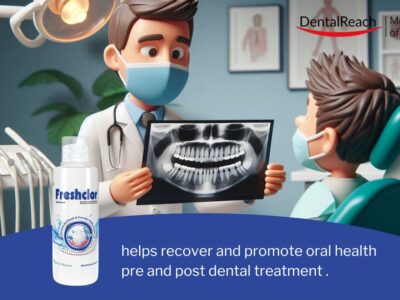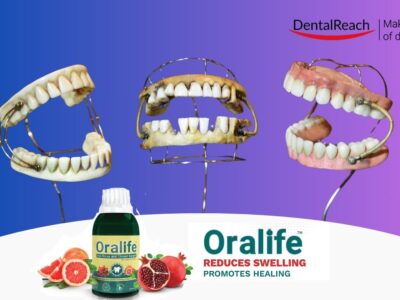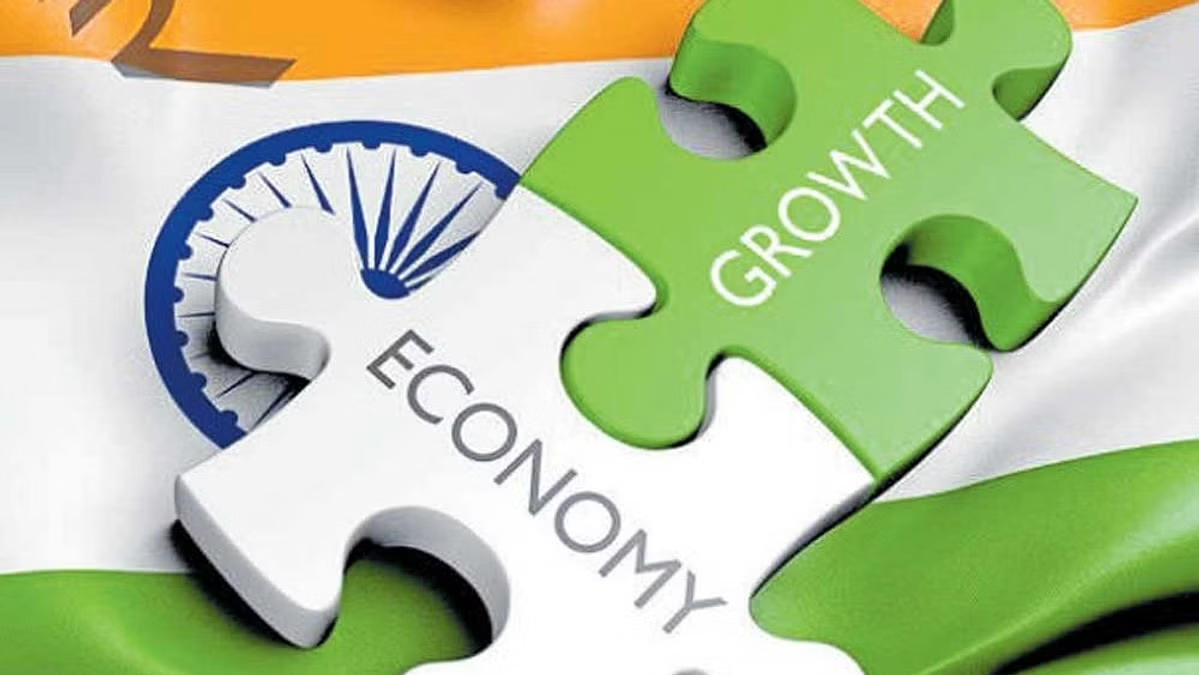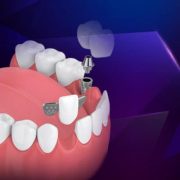It was his last day of internship. All cases completed, and he finally felt accomplished after the long years of struggle to complete his Bachelor’s degree in dental surgery. But there was this ounce of doubt in his head. What next?
Indeed, it’s a privilege to be a dentist in today’s scenario. But just being a Bachelor may not suffice in some parts of our country. Especially in the metropolitan cities where patients proactively browse the internet looking for the highest form of degree a dentist can hold for a specific treatment. Whether you have the apt skills or the experience, it just does not matter. Indian millennials today want the best of the best practitioners with the highest qualification. So sooner or later the amateurs start preparing for NEET and then MDS for another 4 years. But despite all this, a bachelor’s degree in dentistry is more than sufficient to make a living.
It would be unrealistic if I say the road to success after bachelor’s degree is an easy one. One must be diligent and hardworking to get to a point where we have the finances flowing. But with a lot of planning one can achieve whatever he/she is willing.
But so much for our innate qualities, we still look for something more in our careers. Hence in this article, I shall take you through all the best options one can explore after BDS.
What after BDS?
- Start your own practice:
Starting a practice in India in the current scenario is beneficial as India is world’s fifth largest economy after the United Kingdom in 2018 as per the news reports. Infact, any small scale enterprises are doing well in India as the currency values are going up.
Advantages of owning one’s own practice after BDS:
- Be your own boss: Having your own practice gives you the freedom to live the way you want. You can always delegate work to your team members in practice and visit your clinic as per your time.
- Keep your money for yourself: The profits you make through some gigantic cases shall stay with you instead of just getting a fixed salary and lose out all the big money.
- Getting established sooner: The sooner you put your own clinic the sooner you start having a name in the society and get the recognition for your good work.
- Continuous Professional Development: You can have enough time to go for professional development courses alongside your practice. You have the luxury to decide things for yourself.
- Applying new skills: It is understood that no one can question you while you try your hand in any new case when you have the license to do so. For instance, if you would like to try your hands on implants. You can always do it with confidence if you are a certified implantologist.
- Learn the dental market: Private practitioners have a better understanding of what works and what does not.
- Support your family at an early age: Can run other family business alongside your practice. Can support a family member who is a dentist like your spouse.
- Sponsor your own post-graduation: After BDS, we all would like to go for a post-graduation. Instead of using financial support from your folks, we can support ourselves having an income from the clinic.
Hence, I would always recommend starting your own practice after BDS. It’s a win-win situation. But there are many factors you should also take into consideration, for instance, the kind of locality your planning to open a practice, the dental labs nearby and the convenience to commute to the clinic etc.
Calculated risks should be taken when it comes to opening one’s own clinic. Using some advice from your seniors will help you in case you’re naïve.
2. Pursuing your Master of Dental Surgery (MDS):
Course level: Postgraduate
Type: Full time
Course fees: Depends on your chosen branch (2 to 60 lakhs)
Admission process: Entrance based and direct admission if you pay more.
Average starting salary: 4- 10 lakhs per annum for a full-time job.
If you are sure you would like to specialize in any specific branch it’s always better to start preparing for your MDS entrance exams or NEET. Most dentists are likely to succeed undoubtedly in their careers after MDS. There are a galore of career opportunities available after MDS in private practices and hospitals across India.
Options after MDS:
- Start your own speciality practice or a multi-speciality hospital.
- Can work towards starting of multiple practices.
- Working as a consultant and freelancer at your stipulated time.
- Start your own business.
- Get teaching in top dental colleges. Can aim to become a reader or a dean of a dental college. Getting into academics can create financial stability at an early age.
. 3. MBA in Hospital Administration or Healthcare Management:
Course level: Postgraduate
Type: Full Time or Part Time
Duration of course: 2 years
Course fees: 60,000 to 7.5 lakhs depending on the university.
Admission process: Based on performance in entrance test or direct admission.
Average starting salary: 3-12 lakhs per annum
A master’s in business administration in the healthcare sector is the most desirable course for the dentists since the past three decades. In fact, our Indian universities are having some of the best faculties and the training is fine enough to escalate one’s career after bachelor. With the expansion of healthcare industry in India, the scope of a career in this field is better. MBA opens a lot of career opportunities for youngsters at higher posts in hospitals.
With the growing number of group practices, rehabilitation centres, chain of hospitals there is a rise in demand for qualified and talented administrators in most places in India except in the rural areas.
Some of the roles one can take up in hospitals after completion of MBA are Administrators, Human resource manager and supervisor roles.
Some of the roles include:
- Maintaining the standard image, policies and ethics of the hospital.
- Catering to the needs of the patients and to make sure all the treatment protocols are followed by the staff.
- To help doctors meet the standards by catering their demands rationally.
- Recruiting the best staff. Hiring and firing people as per requirement.
- Managing accounts in the hospital.
- Dealing with lawsuits involving the hospital, making sure the hospital runs smoothly.
- Looking for sponsorship and support for the hospital and its staff.
4. MS in Clinical Research (for pharmaceutical companies)
Course level: Postgraduate
Duration of course: 2 years
Course fees: 50,000 to 5 lakhs depending on the university.
Admission process: Based on performance in entrance test.
Average starting salary: 3-12 lakhs per annum
There are plenty of new openings in clinical research in pharma companies. It deals with the evaluation of how effective or useful a drug, vaccine, diagnostic test, new device; surgical technique can be in humans.
The number of trials approved by the Drugs Controller General of India is increasing due to the number of diseases prevailing in India. Various multinational companies and Indian companies are eager to conduct multicentre trials in India. The Clinical Research Organizations (CROs) are outsourcing pharmaceutical research services to India and hence creating employment.
India is the second largest pharmaceutical market in Asia grew by more than 9 % annually. In 2017-2018, 50,000 jobs were created for fresh professionals from various dental and medical colleges.
Some of the roles available for BDS candidates with a clinical research course in Pharmaceutical industries are:
- Co-Investigator
- Medical Advisor
- Drug Developer
- Regulatory Affairs Manager
- Clinical Research Physician
- Clinical Data Manager
- Clinical Trial Documentation in charge
Top recruiters are all hospitals, CROs, Educational Institutes, Government drug and food regulatory /research organizations etc.
5. MA in Clinical Psychology (practice as Psychologists/ Psychotherapist)
Course level: Postgraduate
Duration of course: 2 years
Course fees: 50,000 to 2 lakhs depending on the university.
Average starting salary: 1- 4 lakhs per annum
This course is recommended for BDS candidates who are willing to switch their domain to some extent, and who are focused on earning at the earliest. The fact that these set of skills are highly lucrative and can help you grow immensely.
Some of the posts available after an MA in Psychology are:
- Child support specialist
- Self-reliance specialist
- Drug and alcohol specialist
- Career Counsellor
- Human resource analyst
- Daycare centre supervisor
- Clinical psychologist
- Forensic psychologist
- Health educator
- Parole officers
- Community Relations Officer
- Rehabilitation Specialist
- Research Psychologist
6. Master in Public Health/Administration (MPH):
Course level: Postgraduate
Duration of course: 2 years
Course fees: 3 to 6 lakhs depending on the university.
Average starting salary: 3-10 lakhs per annum
This course is structured to build knowledge, develop skills and provide exposure to real-world situations in public health. The principal areas covered in the curriculum are Epidemiology, Environmental Health Science, Public Health Biology, Health Management and Functional Management, Social and Behavioural Science, Public Policy etc.
It also includes disciplines such as Medicine, Engineering, Information Technology, Social Science and Management.
Top recruiters for candidates with MPH degree are McKinsey and Company, Children’s fund, WHO, Clinton Health Access Initiative, Bill and Melinda Gates Foundation, etc.
7. Government Service Jobs
India is the best country to support your needs in the recruitment industry.
There are several government jobs in the following sectors:
- Public Service Commission (PSC):
There are a galore of jobs available in this category of the state govt for dentists. However, the selection is based on exams. There are opening for lecturers and dental surgeons after BDS and MDS.
For any further information refer to GovtJob.com
- Odisha Public service commission(OPSC):
This was constituted on 1st April, 1949 by three individuals and it was a single body. But later it got bifurcated from former Bihar and Odisha Joint Public Service commission. This has gone a long way and is source of recruitment for the mainstream jobs in the government sector of Odisha.
For further information refer to www.opsc.gov.in
- Union Public Service Commission(UPSC):
This is one of the best government sectors which provide jobs in Ministry of Railways. It comes along with many other bonuses and perks for the railway employees. It’s another highly recommended platform for candidates after BDS.
Dental Council Jobs in India:
This is the best platform to launch you into the mainstream jobs for dentists at a national level. The various posts available from time to time are:
- Medical Officer
- Associate Professor
The recruitment is based on face to face interviews. One needs to apply in websites like Naukri.com.
- Army dental corps
Candidates can opt for dental jobs in the Indian Army which are available in the various hospitals across India. It is prestigious SSC Officer’s post and the dentists are called Indian Army Dental Corps SSC Officer. Any desirous dental surgeon can apply for this post. It’s a very promising and challenging career. If luck is on your side, you can be selected directly as Captain/ major.
- Territorial officer in Indian Navy/Air force:
There are several jobs available in this government sector as well. Like Dental officers, counselors etc. Armed Forces Medical Services is the finest options available in the country for dental professionals. The life of a dentist in the Indian Air force is filled with adventures and is full of self-esteem. It promises both professional and personal growth for dentists. The pay and perk are supposed to be the best and the lifestyle of the armed forces is of the highest standards.
Criteria to get selected:
- Candidate should hold a BDS degree with 60% marks and have MDS from a recognized university.
- Candidate should have completed one year of compulsory rotary internship recognized by the Dental Council of India.
- Candidate should hold a permanent Dental registration certificate.
8. Teaching or Academics:
There are many opportunities in teaching for both graduates and postgraduates in India. Vacancies are available at various times of the year. Teaching is a safe way to balance life between work and family. As the working hours are limited and the salary is fixed.
Above all, one needs to focus on overall self-development to stand out in the job market. Do yourself a favour by improving the following skills:
- Good communication skills.
- Focus on overall development.
- Improve your growth mindset.
- Have a parallel profession.
Why go abroad?
Despite all the unravelled opportunities available for dentists in India we witness a lot of brain drain happening in our country. When asked to doctors about their career plans, they literally talk about going abroad and wishing to earn in dollars. They fancy the lifestyle in foreign countries. The word ‘abroad’ looks appealing to students who have a foreign background or whose relatives are living abroad. It must have been a promising idea few decades back to be in Europe, UK or gulf since our currency values were low at that point in time. But seeing the tremendous growth in the Indian economy, it doesn’t seem practical to move abroad.
India is the fifth largest economy and the most desirous destination for investors. India like China has opened its markets to the world. The Indian rupee has hit a 32-month high against the American dollar. More and more people are willing to settle down in India, there is freedom to practice. Dentists are indomitable and using independence effectively. You can ask a dentist who practices in any developed country. Are they allowed to prescribe any drug which seems appropriate for a case without a pre-written consent? Are antibiotics available to people freely over the counters like in India? Is any BDS doctor allowed to do specialty treatment without scrutiny from the patients?
Every developed country has its own restrictions. Whereas, in India general practitioners can do treatments from any specialization as far as they have the skill. This is next to impossible in abroad countries. Of course, the kind of payroll the dentists in US or UK receive is too higher. But the kind of practice we do in India is way too challenging and we give better results . Moreover, with the kind of population we have in every part of India, any dentist who owns a clinic is bound to do well with a bit of hard work and perseverance.
For the ones complaining of work pressure and lesser pay, I would suggest drawing a line in your work hours and getting the facts right. Seven out of every ten Indians are overworked and underpaid according to a source from IndiaToday as said by Mr Raghuram Rajan the Chicago based economist and former governor of Reserve bank of India. But unless we opt for a change, change isn’t going to come by easily. If you want to see your money double, invest in real estate, mutual funds and put your money into your own family business. Sound knowledge on how to handle money can bring about the kind of income you want. Just as much as you will earn abroad.
Starting your own practice abroad too is a painstaking task. Anywhere abroad, you need a sponsorer. In East Asian countries, the sponsorers even have names like Bhumiputras. The stakes held by you over there as a dentist will be just 35-40% of the total income you make in a day. If you’re opting for developed countries like UK or Australia, you have to clear their set of licentiate exams which costs nothing less than 5-9 lakhs. The exams are itself are so tough, only the smartest of the candidates may get through. The study material and training courses cost separate. After which you will have to go in for vocational training for another year. The entire process easily takes 3 years. Even after all this, you will have to work under restrictions.
The other point is in India, we citizens can open multiple businesses, or practices and still will not be questioned except for the various taxes that we must bear. In India, we can start earning just after our bachelor’s degree. Either one can work as a trainee in a clinic or can get jobs in academics and research field. Moreover, in today’s generation summer jobs are also quite popular to make some quick bucks.
If a country like India can be so relaxed in its rules and can still give us the kind of lifestyle we get in developed countries, then why to go abroad? We are standing at the brink of globalization and will emerge to be a superpower in a few more decades. I don’t see any reason why we should leave our country for any reason.
The only time we Indians should be going abroad is for ‘Holidaying’ and maybe a world tour whenever you are ready to backpack.




















Comments